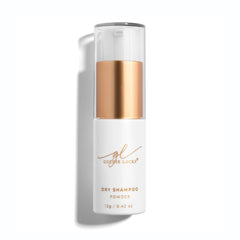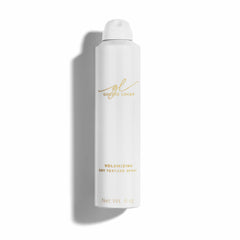Today, we're diving headfirst (pun intended) into a topic that's both intriguing and a bit unsettling - stress-induced hair loss.
Imagine this: You're going through a rough patch – maybe it's work pressure, personal challenges, or just the everyday hustle that's got you tied up in knots. And then, you start noticing more hair than usual in your brush, on your pillow, or clogging up the shower drain. Yikes! It's like your hair is screaming, "We're stressed out too!"
But here's the deal – it's not just an old wives' tale. The connection between stress and hair loss is real, and it's got science backing it up. So, whether you're a skeptic, a curious cat, or someone who's currently watching their once luscious locks thin out, this post is for you.
We'll delve into the science behind stress-induced hair loss, unravel some myths, and most importantly, share some practical and empowering tips to help you and your hair bounce back stronger. So, let's not split hairs any longer and get to the root of this issue!
Index
Breaking Down Stress-Related Hair Loss

Stress hair loss, known as Telogen Effluvium, is a temporary condition of excessive hair shedding from stress or distressing events – think major life changes, emotional rollercoasters, or even physical trauma. Under stress, the body's normal hair cycle is disrupted, pushing many hair follicles into the resting phase (telogen), where they stay before eventually shedding.
Why Does Stress Cause Hair Loss?
Stress can mess with your hair in a few ways. The big culprit? Stress hormones, especially one called cortisol. When you're stressed, cortisol levels shoot up, and your hair growth cycle goes haywire. Cortisol basically causes your hair to shorten its growth phase and get into the resting phase, where hair loss occurs. A study published in Nature showed that in rodents, a stress hormone can make hair follicles stay in the lazy, resting phase longer, leading to, you guessed it, hair loss.
Stress or Something Else?
Now, don't jump to conclusions and blame all hair loss on stress. It's not the only hair thief out there. Unlike genetic hair loss, which typically follows a "losing it slowly" pattern, stress hair loss is sudden.
It's more about spotting the timing and pattern – if your hair loss seems to be playing tag with stressful periods in your life, then stress is likely the culprit. Our next section goes into more detail on how to identify the differences.
Stress vs. Genetic Hair Loss: How to Spot the Difference
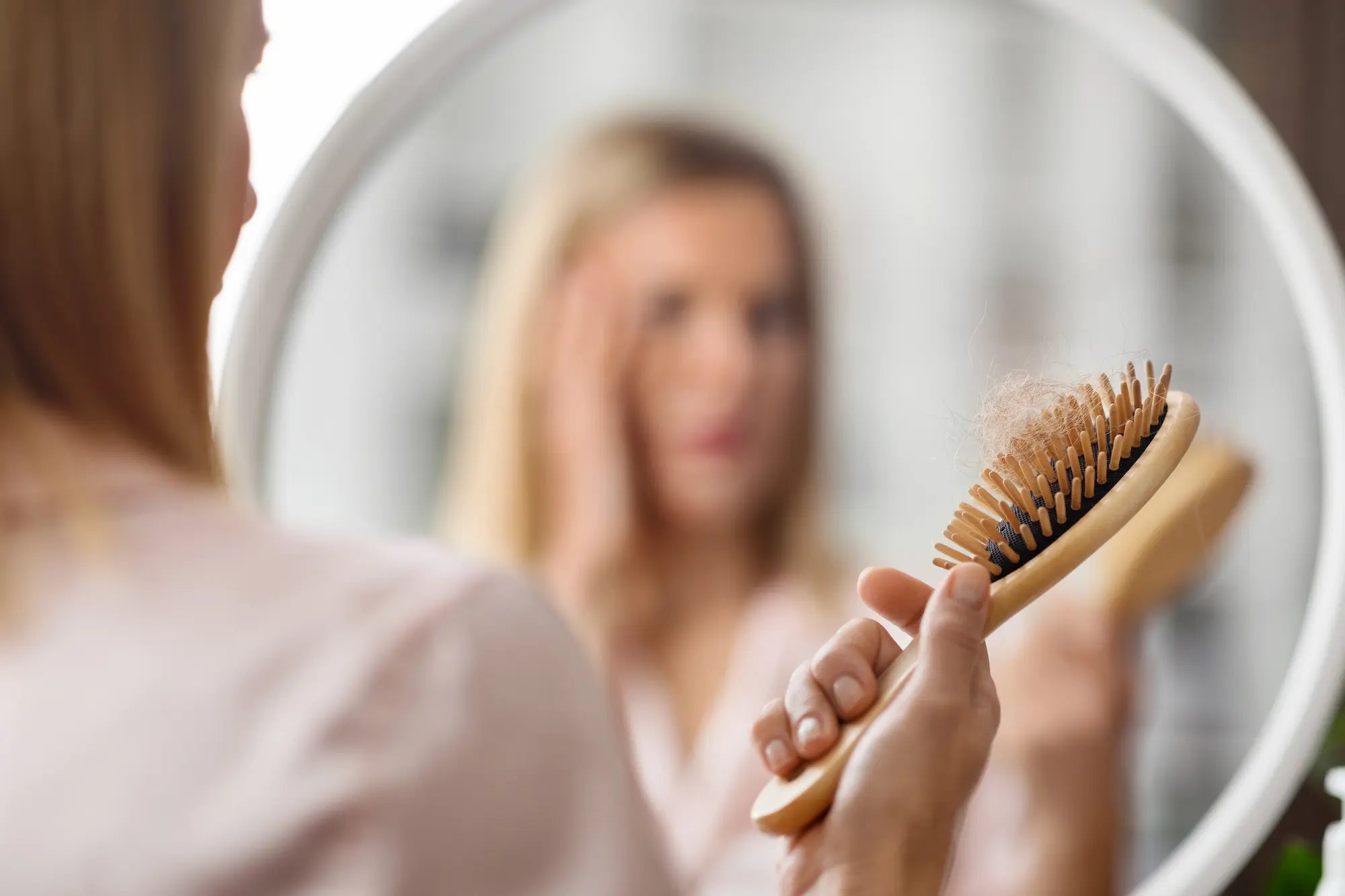
Experiencing hair loss or thinning? Here’s how to tell if it’s really stress-related:
- Increased Shedding: If you're noticing more hair than usual on your pillow, shower drain, or hairbrush, it could be a sign of stress hair loss. Normal shedding is about 50-100 hairs a day, but stress can kick this up a notch (or ten).
- All-Over Loss: Stress doesn't pick favorites. It thins your hair all over, unlike pattern baldness that targets specific zones.
- Delayed Drop: Your hair might start shedding a few months post-stressful event. That's the hair growth cycle reacting to your stress.
- Crown Thinning: Ladies, you might notice your crown thinning out more, but patterns may vary.
- Itchy Scalp: Sometimes stress can also cause scalp issues like dandruff or dermatitis, adding to your hair loss woes.
- Physical Exam: When in doubt, a healthcare professional can perform a pull test or scalp exam to confirm if your hair loss is stress-related.
Knowing these signs can help you tell apart stress-related hair loss from the genetic kind, which usually follows a more predictable pattern.
Culprits Behind Stress-Related Hair Loss
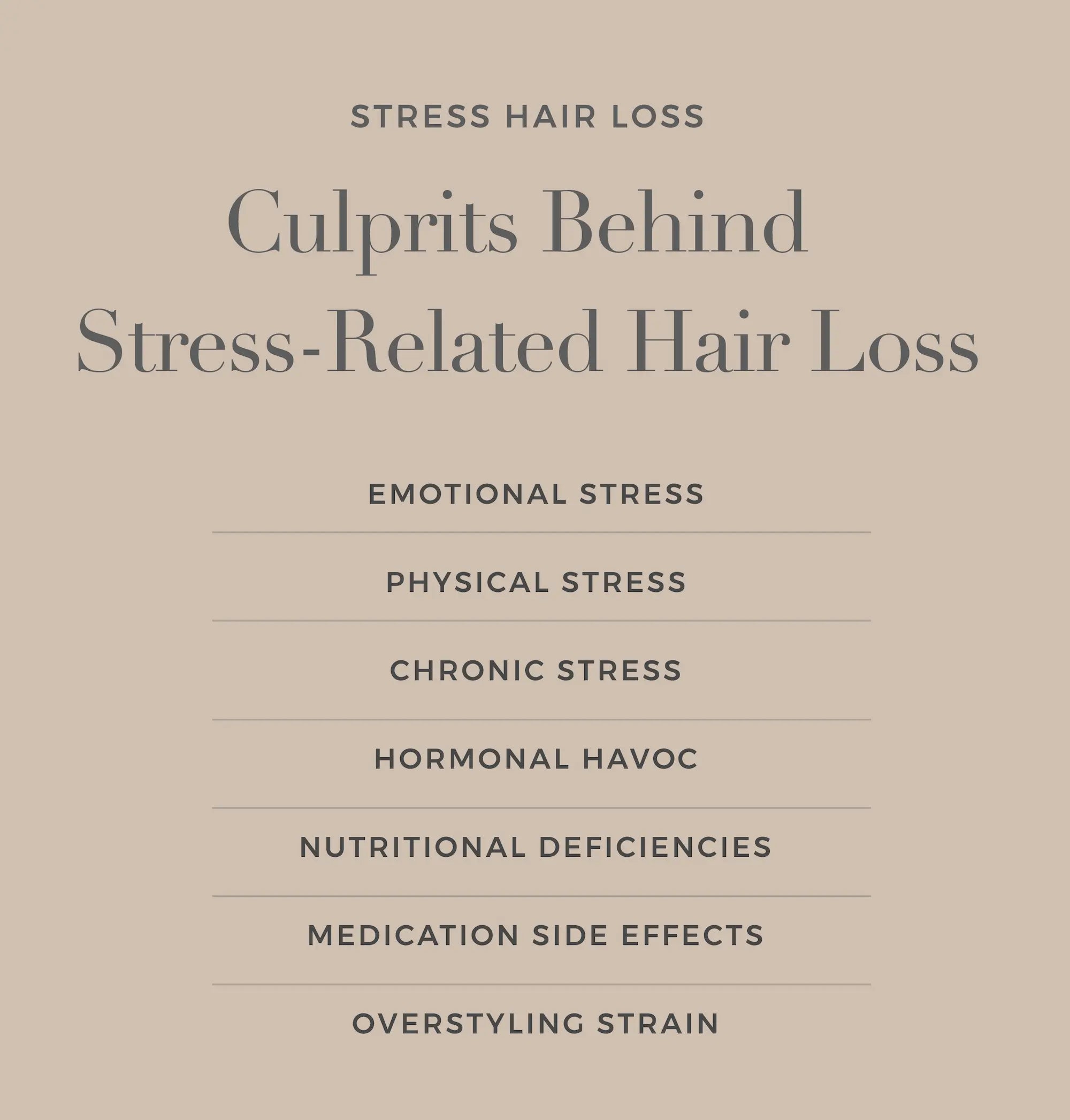
Stress hair loss is often triggered by various stressful conditions and events. Understanding these can be key to managing and preventing hair loss. Here are the usual suspects:
- Emotional Stress: Big life shake-ups like heartbreaks, career upheavals, or losing someone can send your emotions (and your hair) into a frenzy.
- Physical Stress: Your body’s not a fan of shock. Major surgery, illness, or even crash diets can stress it out, triggering hair loss.
- Chronic Stress: Ongoing stress from work, relationships, or chronic health conditions is like a non-stop stress fest for your hair.
- Hormonal Havoc: Stress loves messing with your hormones, and your hair feels the brunt of that chaos.
- Nutritional Deficiencies: Stress eating or not eating? Both can lead to missing out on hair-healthy nutrients like iron, zinc, and B vitamins.
- Medication Side Effects: Certain medications, including those for depression, heart issues, and high blood pressure, can lead to hair loss.
- Overstyling Strain: Love getting creative with your hair? Overstyling or harsh treatments might be stressing it out more than you think.
By pinpointing these triggers, you can take steps to manage their impact and show your hair some love.
Strain on Strands: Impact of Stress on Hair
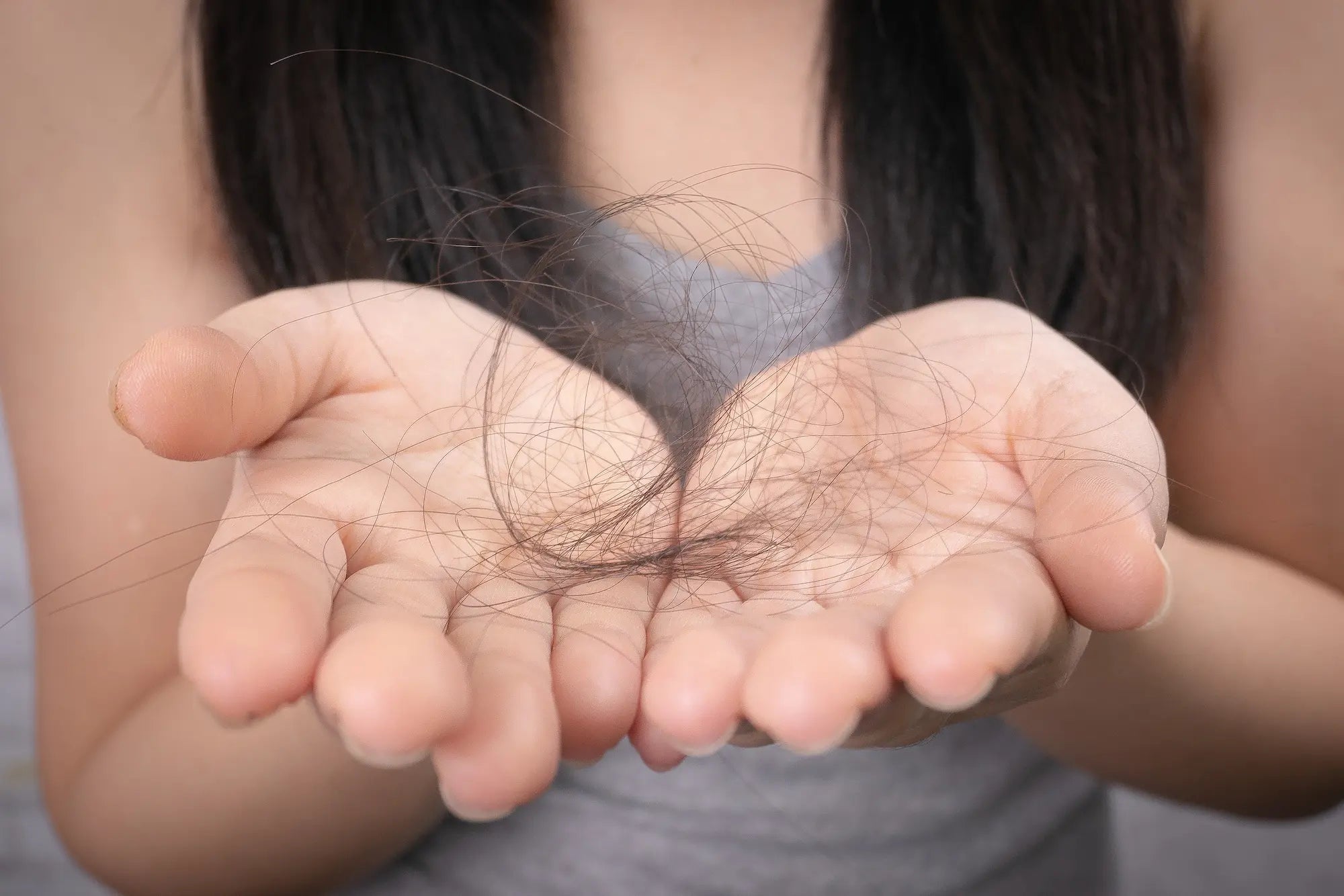
The relationship between stress and hair health is complex. Stress can have both direct and indirect effects on hair growth and quality:
- Hair Loss + Thinning: Stress is like a red light in your hair’s growth cycle. It pushes more hairs into a relaxation phase where they stop growing and eventually fall out. This leads to thinner, weaker hair.
- Scalp Troubles: Stress doesn't stop at hair loss – it's also a starter for scalp issues – think itchy scalp, dandruff, or even dermatitis, all of which can add to your hair woes.
- Lifeless Hair: Long-term stress can rob your hair of its shine and vitality, leaving it dull and lifeless.
Knowing stress's negative impacts, let’s get into how to prevent stress from wreaking havoc on your hair and how to treat it.
From Stress to Success: Solutions for Stress-Related Hair Loss
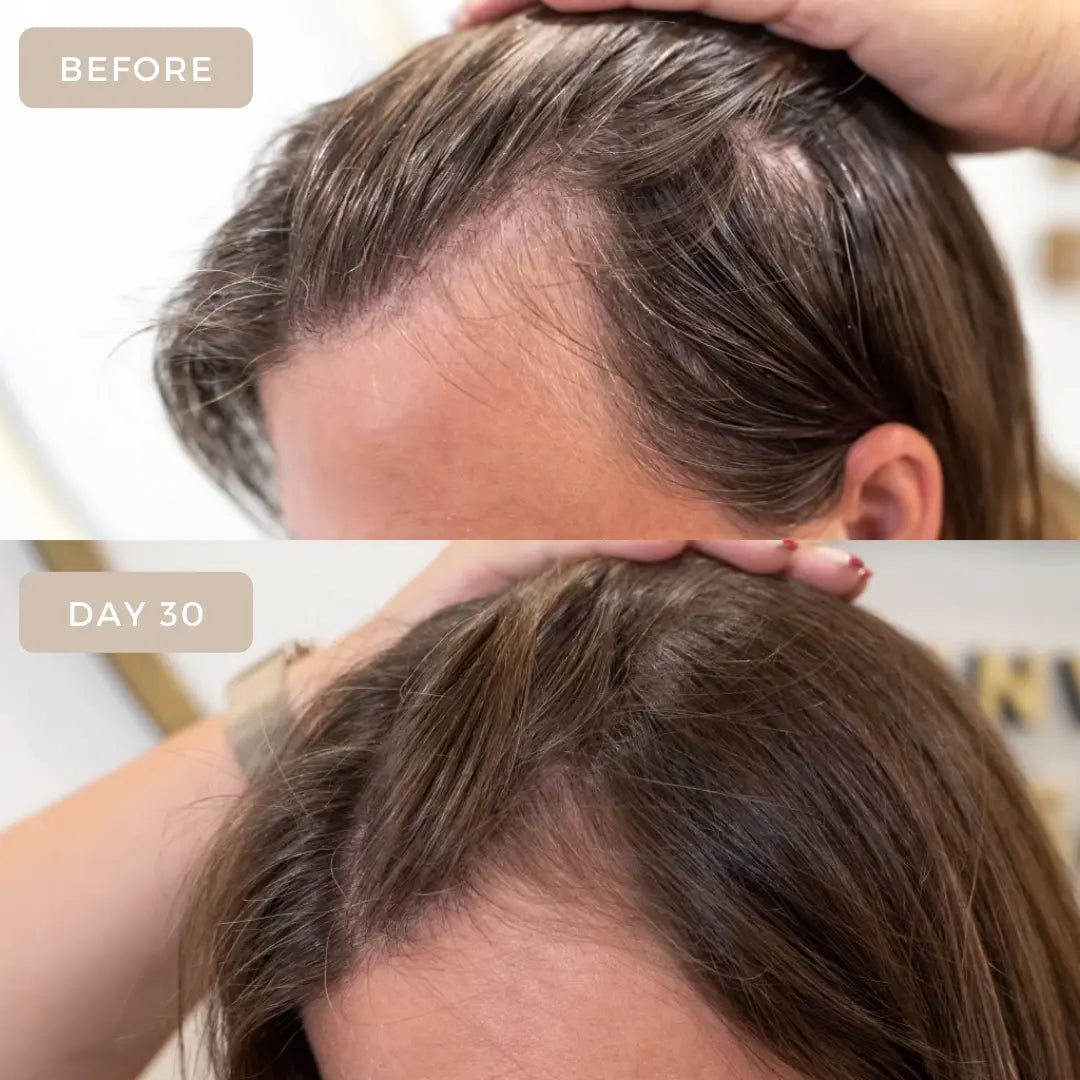
Feeling like stress is stealing your hair’s thunder? Don’t worry, we've got your back (and your scalp) with these practical tips:
- Exercise: Time to unwind! Yoga, meditation, or a simple walk can work wonders in lowering stress levels. Regular exercise is also great for de-stressing!
- Healthy Diet: Your hair is what you eat! Load up on proteins, iron, Omega-3s, and hair-boosting vitamins like Biotin and Vitamin E. Think of it as feeding your hair from the inside out.
- Gentle Hair Care: Be kind to your hair. Ditch those tight ponytails, give heat styling a break, and pamper it with gentle shampoos and conditioners.
- Expert Opinion: Sometimes, you need a pro. Chatting with a healthcare professional can shed light on your hair troubles and guide you to the best solutions.
- Nutritional Supplements: Supplements like Goldie Locks® Hair Supplements pack a punch with hair heroes like Biotin and vitamins A, C, D, E, plus a mix of collagen and herbs. They’re like a power-up for your hair’s overall health and growth.
Combating stress-related hair loss is about a holistic approach – from what you do, eat, to how you treat your hair.
FAQs About Stress Hair Loss
Got questions about stress hair loss? You're not alone! Let's tackle some common curiosities:
Does Hair Loss from Stress Grow Back?
Breathe easy – stress hair loss is usually just temporary. Once you get a handle on your stress, your hair is likely to start regrowth.
What Does Hair Loss from Stress Look Like?
It often presents as an overall thinning across the entire scalp rather than a harsh receding hairline or bald patches.
Does Biotin Help with Stress Hair Loss?
Biotin, a B-vitamin, is known for supporting hair health – especially when included in a balanced diet or with supplements.
How Long Does Hair Loss from Stress Last?
Hang in there! Typically, your hair starts regrowth about 3-6 months after you turn down the stress levels. But this may vary.
Can Stress Cause Permanent Hair Loss?
Stress-related hair loss is typically not permanent. However, prolonged, unmanaged stress can lead to longer-term effects on your hair health and growth.
How to Tell if Hair Loss is Genetic or Stress?
Genetic hair loss often follows a pattern and is gradual, whereas stress hair loss is usually sudden and all-over.
Time to Tackle Hair Loss from Stress
As we wrap up our journey of understanding stress-related hair loss, remember this: you're not alone in this struggle. It's a road many have walked, and thankfully, it's not a one-way street. Stress might be a part of our lives, but it doesn't have to dictate the health of our hair.
Let's recap some key takeaways. First, understanding the connection between stress and hair loss is a giant leap towards tackling the issue. Knowledge is power, and in this case, it's the first step to regrowth. Second, adopting stress-related hair loss management techniques and practices – be it meditation, exercise, diet, or nutritional boosts like Goldie Locks® Hair Supplements – can do wonders not just for your hair, but for your overall well-being.
So, as we put down our combs and step away from the mirror, let’s embrace a lifestyle that includes stress management, self-care, and a whole lot of self-love. Your hair, just like you, deserves the best. Stay strong, stay informed, and let’s keep those locks luscious and thriving!












